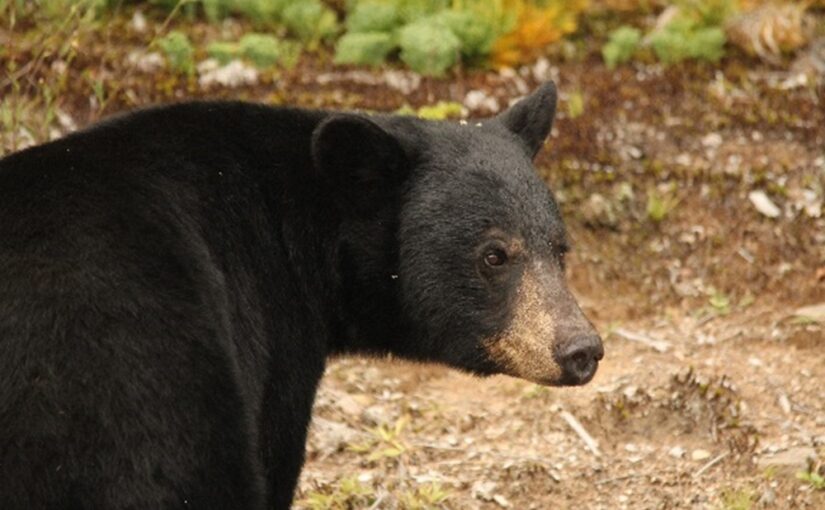Ontario’s Black Bears are busy looking for food in August!
They only have a few a short months before they go into hibernation.
In August, Black Bears are focused on finding delicious berries like blueberries, raspberries, and blackberries.
Guess what time it is?
Time to pack on the pounds!
Bears need to gain a lot of weight in a short time.
From the time bears enter their den to hibernate until natural foods are ripe again the next summer, bears can lose about one third of their body weight.
That’s because they don’t eat when they are hibernating, using their body fat as energy.
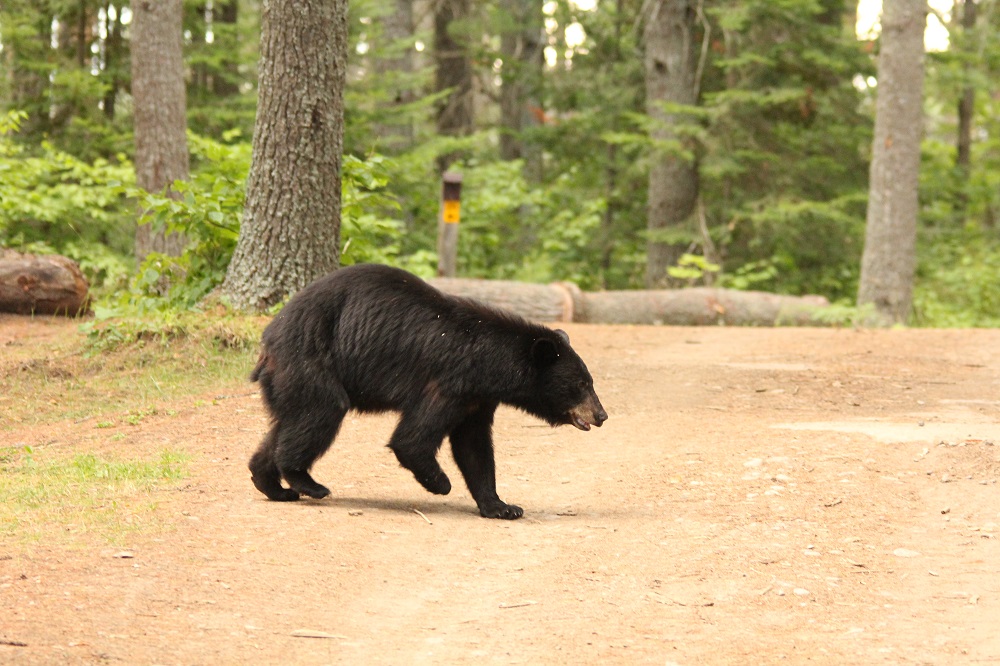
A bear that weighs 150 kg can lose up to 50 kg from when it enters the den in November, until when the natural foods become abundant in July. This cycle happens every year. Black bears undergo a cycle of feast and famine every year.
Here is a quick video on why food is so important to bears, and some things you can do to help reduce human-bear conflict.
Are bear cubs weaned yet?
Black Bear cubs born in the den in January/February are busy little balls of fur in August.
Every day they’re learning new things from mom, including what to eat!
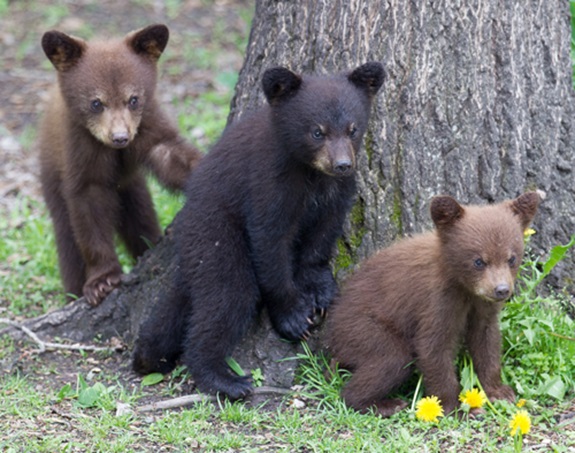
Cubs are still nursing, although the weaning process is underway. They are getting more and more of their calories from natural foods, like berries.
The family unit is still closely bonded and will hibernate as a group together in the fall.
Bear families stay together for 17-18 months.
Where do bears hang out in August?
You’ll find bears where berries are ripe.
Bears may be spotted near hydro lines, forest disturbances such as areas where fire has recently swept through, roadsides, and forest edges.
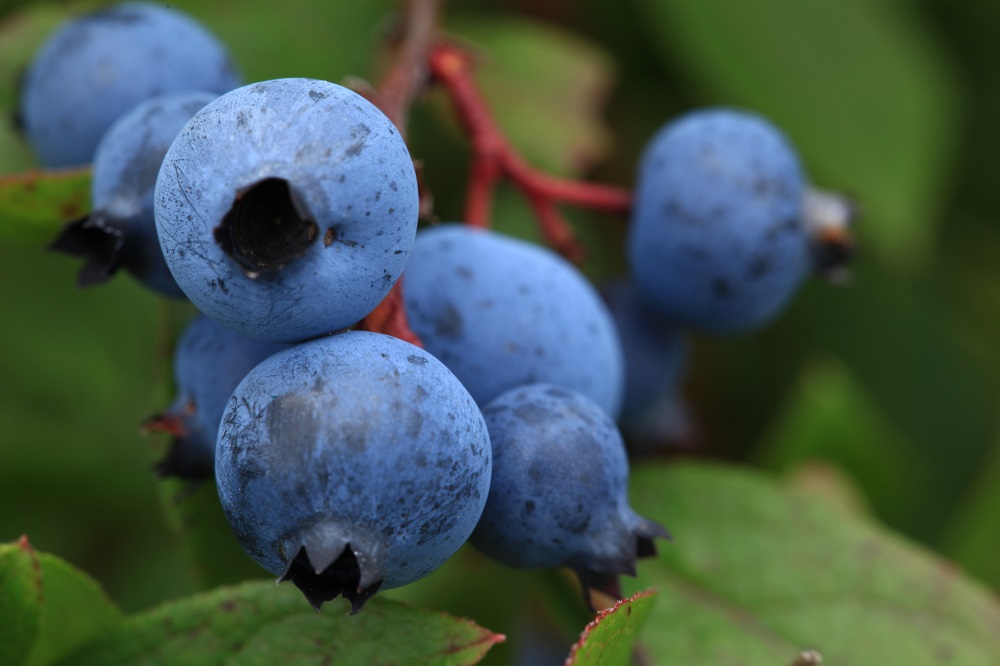
They have excellent long-term memory and will return to areas where they have found abundant food sources in the past.
Black Bears are most active during dawn and dusk hours.
Be alert — keep an eye for signs of bears
Black Bears will leave many signs of their presence.
Flipped over rocks, claws marks on trees, and fresh bear scat are all signs of recent bear activity.
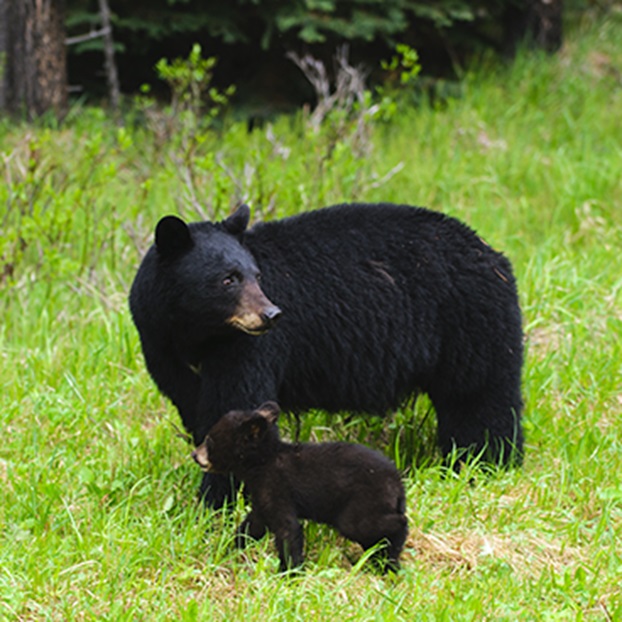
In August, Black Bears are so focused on consuming delicious berries that they may not hear an approaching human, so make lots of noise when out in bear country.
If you see berry bushes that look like they have been trampled down, a bear may have been foraging there.
What if I encounter a bear?
Millions of visitors have safe and enjoyable visit to Ontario Parks every year.
Random clapping of the hands, a quick “Hey bear,” and lots of conversation will deter most bears from your vicinity, however, it’s important to be alert and aware of your surroundings at all times.
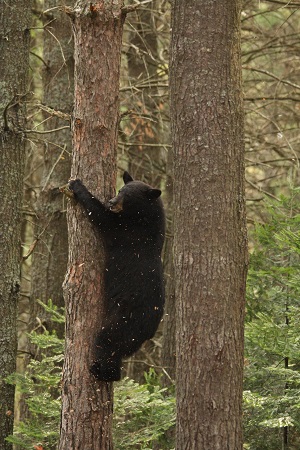
Knowing how to react to a bear encounter is important.
Don’t ever run or climb a tree.
Bears are faster and better climbers than all humans. Approaching a bear is a bad idea. Bears have personal space just like humans, and every bear is different.
If you see a bear before it sees you, stop, do not walk closer for a better look. Quietly go the opposite direction, while keeping an eye on the bear until it is out of sight.
If the bear is or becomes aware of your presence, calmly identify yourself as human. Raise your hands above your head and say, ‘Hey bear.’
Most of the time, as soon as the bear knows you are a human it will run the other way.
To learn more about what to do when encountering a bear, visit the Bear Wise website.
What about my dog?
Free-roaming dogs cause problems for wildlife.
In provincial parks, all dogs must be on a leash of two metres or less at all times unless in an authorized off-leash location.
This is especially important in bear country.
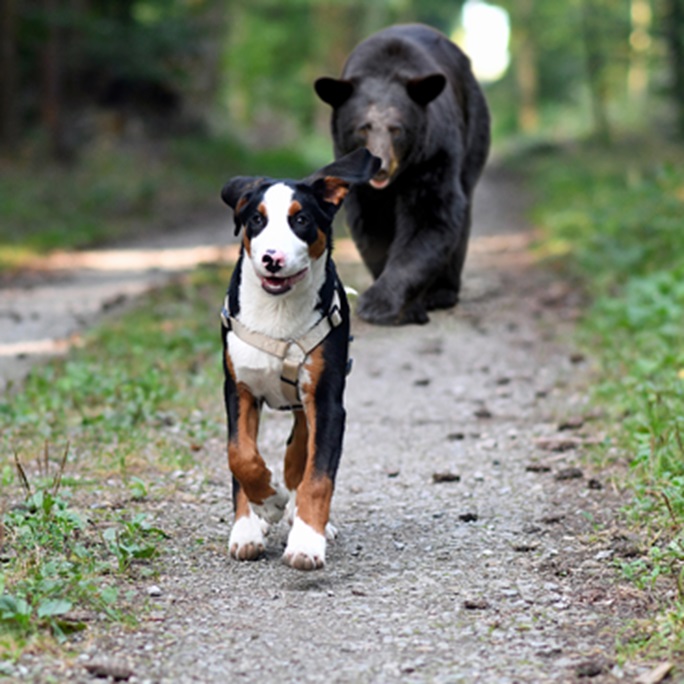
Unleashed dogs may harass a bear, then return to their owners. This can cause a chase response that may lead a bear back to the owner.
Please keep your dog leashed to reduce the potential of a negative interaction with a bear.
Be Bear Wise
Black Bears are amazing animals.
Let’s all do our best to respect and coexist with the Black Bears who call our protected areas home!
